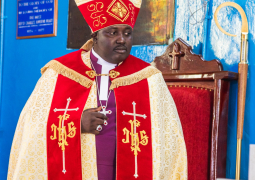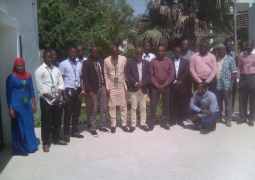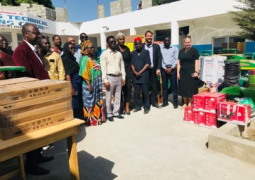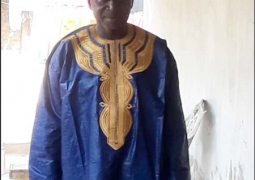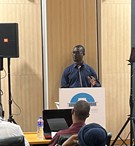
The event, held at the Sir Dawda Kairaba Jawara International Conference Centre, brought together 30 journalists from various media houses across The Gambia.
The training aims to sharpen the capacity of reporters to cover governance issues, promote transparency and accountability, and serve as a bridge between the government and the public.
The training, held on July 8 and 9, is designed to empower journalists with the tools and knowledge to contribute meaningfully to democratic discourse and national development. Participants represented a broad spectrum of the Gambian media landscape including print, broadcast and online platforms, highlighting the importance of a unified and ethically grounded press corps.
Organised by Gambia Participates, a civil society group advocating for good governance, and facilitated in partnership with GPU, the workshop focused on the media’s role in ensuring accountability, promoting inclusive politics and combating disinformation.
In his opening remarks, Marr Nyang, CEO of Gambia Participates, emphasised the urgent need for ethical journalism in a country facing political polarization and a flood of online misinformation.
“Thank you to the GPU for partnering with us to make this possible,” he appreciated. “The media has a powerful influence in shaping national narratives. But we must be honest there are pressing issues we need to address as a nation, and journalists have a vital role in doing that.”
He warned that unethical journalism and unchecked misinformation could undermine national unity.
“If misinformation becomes the daily meal of the public, we are in trouble. Journalists must rise above the noise and deliver facts, context and clarity. If not, we risk fueling a dangerously misinformed and angry population,” Nyang said.
Referencing the rejection of The Gambia’s draft constitution in both 2020 and 2025, Nyang lamented the growing national divide and pointed to the critical role of the media in rebuilding public trust.
“We are clearly a divided country,” he cautions, saying: “The rejection of two constitutional drafts is proof. But ethical journalism can help us heal, unify, and hold power to account. We must commend GPU’s fact-checking initiative for helping verify political claims and challenge public misinformation.”
Nyang also raised concerns about the rise of untrained “citizen journalists” who flood social media with unverified contents and hate speech.
“Ethical journalists are doing commendable work, but their efforts are often undermined by viral posts filled with insults and lies. You can’t scroll social media for three minutes without stumbling on something toxic. This is why training like this is so important,” he underlines.
The sessions include topics such as democratic principles, inclusive political reporting, media ethics, fact-checking techniques, and the importance of journalistic responsibility in a digital age. Facilitators are drawn from media development organizations, governance experts, and experienced editors.
The President of the Gambia Press Union, Isatou Keita, applauded the collaboration and reiterated the GPU’s commitment to defending press freedom and raising journalistic standards in the country.
“This partnership reflects our shared mission to empower journalists to be agents of truth, accountability, and inclusion,” she stated. “In a time when misinformation, political polarization, and threats to press freedom are growing, capacity-building initiatives like this are essential. Strengthening journalists’ understanding of democratic governance and inclusive politics helps to build a more informed, engaged and equitable society.”


